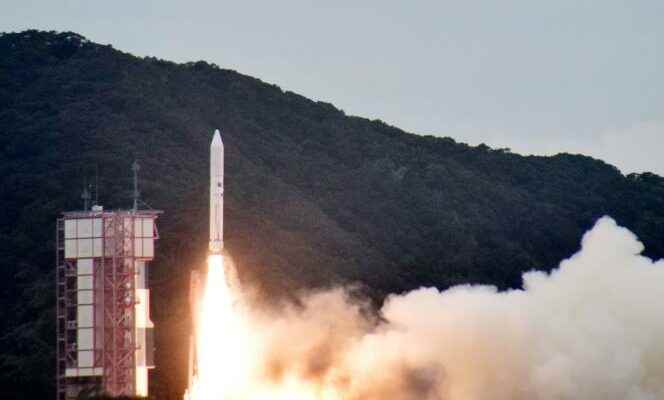This had not happened since 2003. Noting a problem during the launch of one of its rockets for the first time in almost twenty years, on Wednesday October 12, the Japanese space agency JAXA sent a self-destruct order to Epsilon -6 which carried several satellites.
“The rocket cannot safely continue its flight, because of the danger it would represent if it crashed to the ground”a JAXA official told Japanese broadcaster TBS. “So we took measures to avoid such an incident, and we sent a signal” to destroy it, the official added, without providing details on the origin of the problem.
26 meters high, 95 tons
It was the sixth launch of an Epsilon rocket, a JAXA solid-fuel model whose (unmanned) flights began in 2013.
JAXA on Wednesday interrupted the live online broadcast of the launch of Epsilon-6 from its Uchinoura space center in Kagoshima prefecture (southwest of Japan), without initially giving any explanation.
The 26-meter-tall, over 95-tonne rocket is smaller than Japan’s previous liquid-fueled model, and was the successor to its previous solid-fueled “MV” launcher, which was discontinued in 2006 due to high costs.
